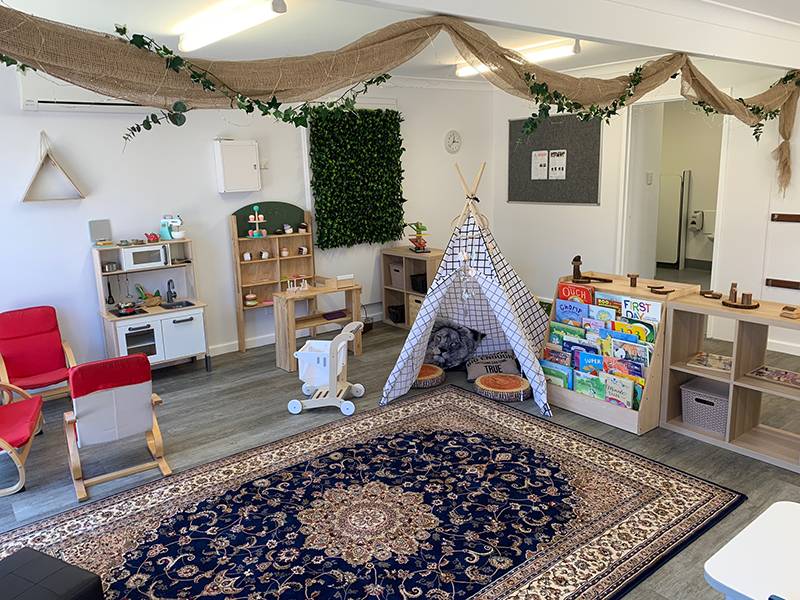Why Kids Thrive With The Reggio Emilia Approach

Why Kids Thrive With The Reggio Emilia Approach
The Reggio Emilia educational philosophy turns the traditional 'adult instructs, child follows' approach on its head and it's not always an easy one to get to grips with.
But the proof is in the pudding and evidence is everywhere that kids thrive with this progressive approach in which the child is the protagonist of their own learning.
We take a look at some of the distinguishing features of the Reggio Emilia approach which have contributed to its worldwide acclaim and popularity.
What is the Reggio Emilia approach all about?
The basis of the philosophy is that every child is seen as naturally curious about the world around them and that each one is powerful, competent and rich in potential. It's a play-based approach which doesn't follow a blueprint curriculum with prescribed outcomes, but instead is organic, free-flowing and directed by what the child is interested in.
Children aren't seen as lumps of clay, waiting to be moulded by what the educators feel they need to learn. Nor are they seen as sponges, simply soaking up information. Rather, the child's learning is guided by their innate curiosity about things that interest them which leads them to experiment, explore, discover, express themselves and communicate.
By doing what a child loves, the child learns to love learning.
Following are some of the guiding principles of the Reggio Emilia approach:
The role of the environment
The environment acts as the 'third teacher'. Classrooms and the outside environment invoke wonder and engagement and all inhabitants of the space feel safe, supported, welcomed, excited and inspired.
Children also learn in many diverse ways and the environment has to provide multiple opportunities and authentic materials for them to explore, communicate and reveal what they have learnt. Whether a child is drawing, painting, sculpting, building blocks, playing with mud, swinging, jumping, climbing, acting, singing, dancing, writing and reading or simply talking – Reggio environments are high quality spaces which offer multiple ways for children to create and construct.
The environment is also a space where children's work is displayed, sending a positive message to each child that their thoughts and their strategies are valuable and worth sharing.
Educators as researchers
In Reggio-inspired environments, educators don't instruct. They co-construct knowledge.
The curriculum isn't set, but rather emerges dynamically as the children's interests are explored and the educators feature as observant co-researchers. Parents are also a key part of the learning journey and their active participation within the school community is encouraged.
This approach lends itself to open-ended projects which develop organically depending on the direction of the children's research and discovery. There's no time-frame to these endeavours, nor are they a means to an end. Children thrive with this type of in-depth learning because they're in charge of the lines of enquiry. What they do depends on their interests and what they discover along the way. The child is also meaningfully involved in choosing how they want to represent their findings and what materials they wish to use.
Collaboration
Children are encouraged to work together to find solutions. Group work gives them a sense of belonging and it also helps them develop crucial cognitive, physical, social and emotional skills such as problem-solving, communication, negotiation, taking turns, empathy, patience and resilience.
A last word on why children thrive with the Reggio Emilia approach
Because the central tenet of the Reggio approach is that each child is valued and each is capable of constructing their own learning based on the things that interest them, kids feel truly seen. It's a non-judgemental, non-comparative educational environment so children are confident to voice their opinions, reveal their findings and be themselves.
It's also a play-based learning environment which many experts believe to be the best foundation for quality early education. The child's natural curiosity drives discovery about their surroundings, about themselves and about others and when children are given the freedom to explore and play according to their own interests, it sets the foundation for them to develop into independent and innovative thinkers.
During free play, children use their imaginations and pursue their own lines of enquiry, leading to greater engagement and more meaningful learning.
Kids thrive because they can test their own theories and be spontaneous. They thrive because they are respected and can express themselves without fear of judgement or failure. They thrive because they're learning about things they love. They thrive because their unique capabilities and intelligence are honoured. With the Reggio Emilia approach, kids thrive because they belong.
 Author Bio
Author Bio
Simone O'Brien owns Treasured Tots Early Education which operates four highly successful childcare centres in Perth, Western Australia.
She has been in the childcare industry for 14 years and has established Treasured Tots as the benchmark for quality childcare in Perth.
Simone qualified with a Diploma in Children's Services and worked in childcare for a couple of years before recognising a dire need for childcare that offered families a loving, nurturing, supportive and warm 'home away from home'. This prompted her to open her first childcare centre in Perth in 2011 at only 22 years of age.
Simone is an active member of the Australian Child Care Alliance (ACA), a not-for-profit, member-funded organisation which advocates for the future of Australia's children.
MORE



